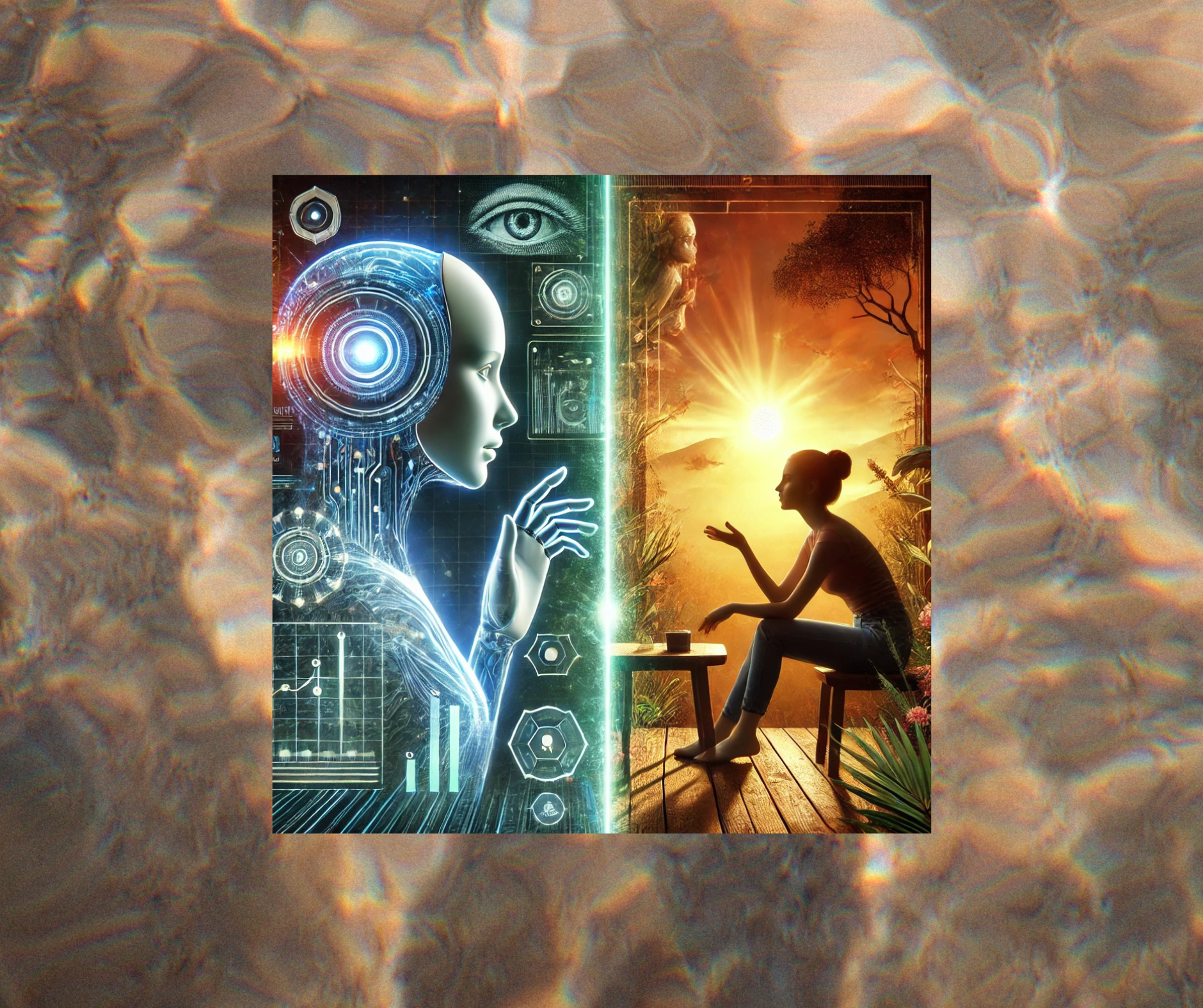What AI Can’t Replace – The Human Alchemy of Coaching & Transformation
AI is changing the way we work, think, and lead. In a recent C-Level women’s group discussion, we explored how leaders are integrating AI—both professionally and personally. It sparked an important question for me:
What can AI not replace?
I genuinely love AI—I use it to refine my writing, analyze patterns in leadership assessments, and streamline admin tasks so I can focus on deep work. AI is an incredible tool.
But here’s what AI can’t do—and never will:
Sense the unspoken
Guide real transformation
Hold the kind of space where breakthroughs happen
And this, I believe, is where AI will actually separate different kinds of coaching.
AI Will Expose the Difference Between Coaches
Coaching has exploded in the last decade. Some coaches operate at a deep, transformational level, while others focus more on tactics, frameworks, and accountability.
AI is going to accelerate this divide.
🚀 If coaching is just about setting goals, applying frameworks, or offering insight—AI can already do that.
🌀 If coaching is about presence, intuition, and helping leaders navigate uncertainty at a deep level—AI will never replace that.
AI is going to accelerate this divide.
If coaching is just about setting goals, applying frameworks, or offering insight—AI can already do that.
If coaching is about presence, intuition, and helping leaders navigate uncertainty at a deep level—AI will never replace that.
So what makes the difference?
What AI Can’t Replace in Coaching & Leadership Development
Presence & Deep Listening
AI can process words, but it can’t sense energy shifts, hesitation, or the emotions beneath what’s spoken. The real magic of coaching happens in the unsaid moments—in pauses, tension, and the space between the words.Human Intuition & Pattern Recognition
AI predicts patterns based on past data. Human intuition is different—it draws from a lifetime of experience, energy, and relational wisdom. As a coach, I don’t just hear what my clients say—I sense what’s underneath.Somatic & Energetic Awareness
In both executive coaching and my medicine work, transformation isn’t just cognitive—it’s felt in the body. Leadership breakthroughs happen not through logic alone, but through embodied shifts.The Alchemy of Trust & Vulnerability
People don’t transform from information alone. They shift when they feel safe enough to explore their deepest fears, motivations, and blind spots. AI can generate leadership advice, but it can’t cultivate deep trust and safety.
What to Look for in a Coach (Now That AI Is in the Mix!)
If you’re looking for coaching in this AI-driven world, ask yourself:
✅ Does this coach truly listen—or just give advice?
✅ Do they work at a deep level, or just regurgitate frameworks?
✅ Can they navigate emotions, somatics, and real-time challenges?
✅ Are they evolving themselves, or stuck in their own patterns?
If a coach is just offering insights without real transformation, AI can probably do that faster (and cheaper).
What I Love About AI (And How I Use It!)
I’m not anti-AI—in fact, I love how it supports my work. AI helps me:
✅ Refine my ideas & content
✅ Summarize complex research quickly
✅ Analyze patterns in leadership assessments
✅ Save time on logistics so I can focus on deep work with clients
But at the end of the day, AI enhances my work—it doesn’t replace it.
The Future of Leadership Isn’t AI—It’s Human-Centered Intelligence
As AI reshapes industries, leaders will need more human-centered skills than ever.
The future of leadership isn’t about being the smartest in the room.
It’s about being the most present, adaptable, and emotionally intelligent.
So my invitation to fellow coaches, leaders, and those navigating this evolving landscape:
💭 Embrace AI for what it does best—efficiency, insights, and innovation.
💡 But double down on what makes you irreplaceable—your presence, intuition, and ability to catalyze true transformation.
AI will separate surface-level coaching from deep, human-centered coaching.
The question is—where do you want to be?

